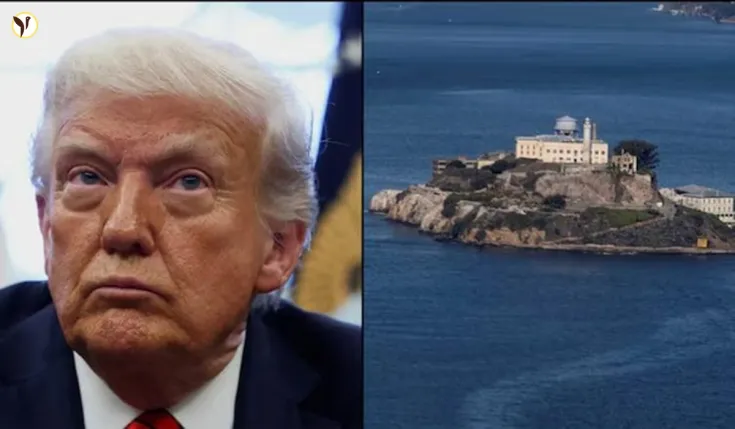Alcatraz: The Rock's Infamous Past and Uncertain Future
Alcatraz. The very name conjures images of hardened criminals, daring escapes, and chilling isolation. This infamous island prison, once home to some of America's most notorious gangsters, has captivated the public imagination for decades. But now, a surprising proposal threatens to rewrite its history. Former President Donald Trump has announced plans to reopen Alcatraz, sparking a heated debate about justice, history, and the practicality of such a bold move.
The Legend of Alcatraz
Located in the frigid waters of San Francisco Bay, Alcatraz served as a federal penitentiary from 1934 to 1963. Its isolated location, treacherous currents, and seemingly impenetrable security earned it the nickname "The Rock," a fitting moniker for a prison designed to house America's most dangerous criminals. Inmates like Al Capone and George "Machine Gun" Kelly spent time within its walls.
- Notorious Inmates: Alcatraz housed a roster of infamous criminals, including Al Capone, George "Machine Gun" Kelly, and "The Birdman of Alcatraz," Robert Stroud.
- Escape Attempts: Despite its reputation, Alcatraz saw numerous escape attempts. The most famous involved Frank Morris and the Anglin brothers in 1962. Their daring escape, involving dummy heads and a homemade raft, remains shrouded in mystery. Were they successful? Or did the unforgiving waters claim their lives?
The 1962 escape, later immortalized in the Clint Eastwood film Escape from Alcatraz, fueled the legend of the island prison. While the official investigation concluded the escapees likely drowned, the lack of definitive proof continues to fuel speculation and conspiracy theories.
The Closure and Trump's Proposal
Alcatraz closed in 1963, not because of a successful escape, but due to the exorbitant cost of maintaining the isolated facility. The high operational expenses, coupled with deteriorating infrastructure, led to its closure. The island subsequently became a popular tourist attraction, a testament to its enduring appeal.
Trump's announcement to reopen Alcatraz, however, has thrown this status into question. He envisions it as a prison for "America's most ruthless and violent offenders," a symbol of a "more serious nation." This proposal has drawn sharp criticism from various quarters.
- High Costs: Reopening Alcatraz would involve significant costs for renovations and ongoing operations.
- Logistical Challenges: The island's remote location presents considerable logistical hurdles for staffing and supplying a prison.
- Environmental Concerns: The island's environmental sensitivity and historical designation add to the complexities of the project.
- Public Opposition: Many oppose the reopening, viewing it as a wasteful and impractical proposal that ignores the island's current status as a historical landmark and tourist attraction.
Conclusion: A Controversial Idea
The future of Alcatraz remains uncertain. While Trump's proposal taps into a desire for stricter law enforcement and a strong stance against violent crime, the practical and logistical challenges are immense. The financial costs, environmental considerations, and strong public opposition all cast doubt on the feasibility of this ambitious plan. Alcatraz's story continues to evolve, reminding us of the enduring power of history and the ongoing debate surrounding criminal justice.
Also Read:







